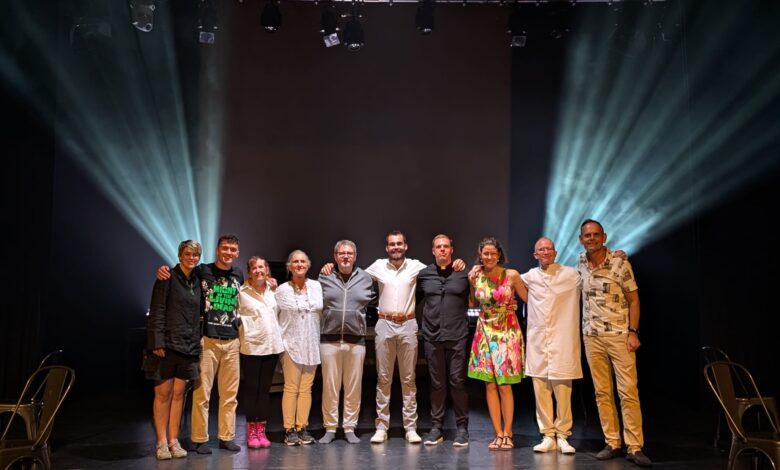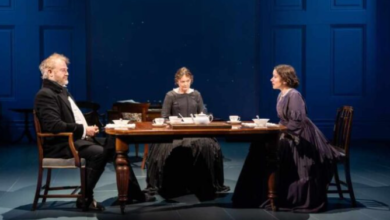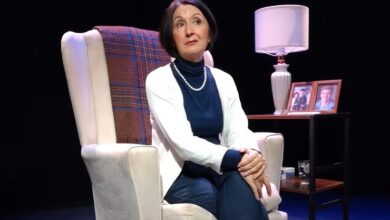Review: Continuity, Cockpit Theatre
An unbridled dystopian drama, full of ideas but lacking plausibility and emotional truth.Rating
Ok
Set in 2034 and promising themes of billionaire greed, transhumanism, medical ethics and the future of humanity, Continuity has a premise that feels extremely relevant and extremely interesting. The programme suggests a provocative dystopian thriller about power, vulnerability and the limits of human life. It is somewhat frustrating then that what unfolds on stage is less an incisive drama and more a scattergun barrage of ideas that never really coalesce into a satisfying whole.
The central question is a compelling one: if a revolutionary new treatment could restore your health or extend your life indefinitely, would you take it? And who would control such technology? The play centres around this dilemma by introducing 7 (Martin Maynard), a disabled man offered a cure by a famous billionaire, Y (Christian Burton), who believes he has unlocked the secret of human “continuity” – not simply a cure for his disability but later on the potential for better eyesight and eternal life. From here, however, the writing becomes increasingly overburdened. Instead of focusing on this core premise, David Sear’s script endlessly jumps tracks and attempts to tackle aging, disability, immortality and medical ethics. And the themes and ideas do not stop there. Along the way we pick up unexplored mentions of conspiracy theories, mRNA vaccines, Brexit (please tell me we won’t still be talking about this in 2034), Trump, Farage, veganism, liberalism, phone addiction, social media control, content subscriptions and (phew!) religious fanaticism. If it sounds like it’s too much, that’s because it is.
The result is that the ideas dominate at the expense of character and drama. The figures on stage stop resembling people and instead become vehicles to voice arguments: the mother is primarily a demonstration of aging with enthusiasm, the wife functions almost exclusively as the counter-argument against the treatment and the daughter seems to exist merely to grandstand on the issue of social media and phone addiction. The character of the religious fanatic is even more perplexing, but nevertheless provides some action which moves the drama along in the second act. Plausibility is stretched as far as it can go and despite the drama, the emotional stakes feel purely abstract.
Watching it in the round creates the kind of fear you’d get from being in close proximity to a faulty firework, at one point demanding we participate in making a controversial decision. The plot itself contains enough suspense to maintain interest, with some worthwhile twists to keep the audience engaged until the very end.
The cast work extremely hard and often with admirable commitment. Burton brings intensity to Y, and Maynard brings gravitas and credibility to 7. Elsewhere, the cast all do sterling work, injecting much needed realism into underwritten roles.
Visually, the production is relatively well directed but at times strives for a sci-fi atmosphere with operating theatre lighting, headlamps and Big Brother-style graphics that evoke more 1970s Doctor Who than future dystopia. These tonal shifts are jarring rather than ominous.
Continuity has ambitious ideas, but ambition alone cannot replace shape, focus or emotional truth. What could have been sharp, unsettling and thought-provoking becomes an overburdened and fussy tangle of ideas. These themes matter deeply but theatre requires more than themes. What’s needed here is structure, discipline and heart.
Produced and presented by True Life Productions
Directed by Rosa Piovani
Written by David Sear
Lighting design by Anna Menzel
Sound effects by Jamie Rycroft
Music by Nigel Bennet
Special effects by Mike Rudin
Costumes by Rosina Piovani
Continuity plays at the Cockpit Theatre until Saturday 22 November.






